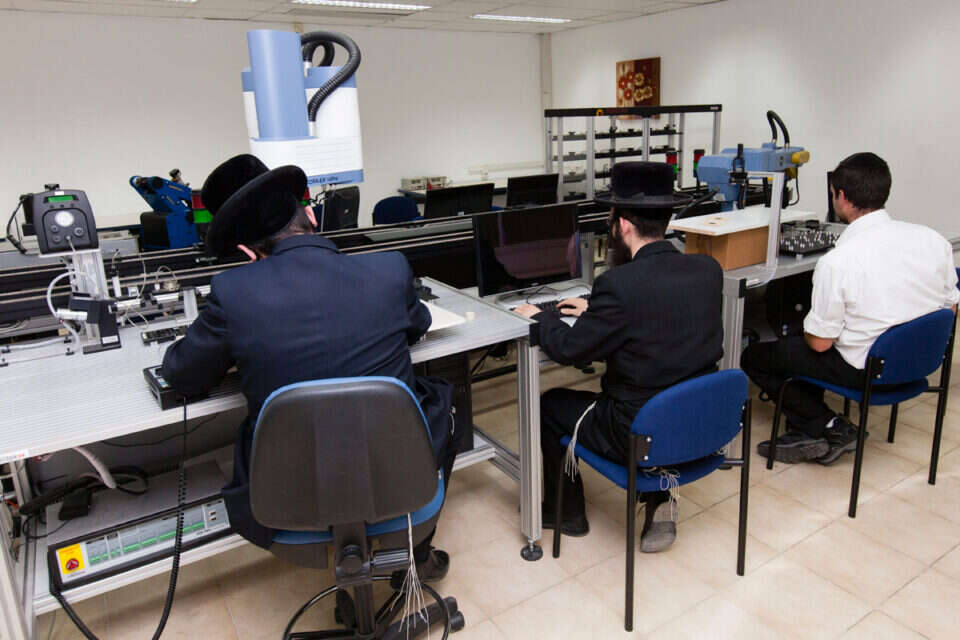The coalition agreements opened the painful wound of core Torah studies and yeshivas. This is a complex problem, because any change in the format of Haredi education involves touching the sensitive nerves of the basic Haredi ethos.
You can continue to wallow in the mud of battle, throw slime at each other, make a living for the media and let politicians on both sides make political gain. On the other hand, it is also possible to try to think outside the box and propose a move that does not solve the problems at the root, but will at least provide an immediate, if not perfect, solution to some of the basic problems.
About 400,64 Haredim are of working age (25-79). The employment rate among Haredi women stands at 81%, similar to the share of working women in the non-Haredi population (52%). The biggest problem lies among Haredi men, whose employment rate is only 8%. Even among men who do work, these are low-paying jobs – as a result of a lack of quality vocational education. An ultra-Orthodox man earns on average about half the monthly salary of a non-Haredi Jewish man (NIS 800,17 versus NIS 65,250). The bottom line is that about 100% of the Haredi workforce participates in the labor market. More than <>,<> Haredim go to work every morning. Alongside them, <>,<> men do not work and invest all their time in the tent of Torah.
The lion's share of Haredi society is already in the labor market. The big problem is productivity and low wages, as mentioned above, as a result of a lack of appropriate education.
Instead of continuing to complain about an unproductive sector, it is time to create tailored solutions for the sector that will dramatically improve the professional abilities of Haredim who are already in the labor market – or will enter it in a short time.
Unlike a secular man whose professional career preparation process actually begins in elementary school, continues in high school and reaches academia, the Haredi man's professional career usually begins at the beginning of his third decade – and after marriage.
Therefore, in order to optimally integrate Haredi men into the labor market, a strategic plan must be implemented that will include high-quality, supervised vocational training tracks adapted to the Haredi lifestyle and the later age at which Haredi men's professional careers begin. Instead of the Haredi man taking the first job that comes his way, which in many cases has no employment horizon and low wages, he will have the opportunity to find a professional track that suits him and integrate into the employment market optimally.
Only recently have the high grades achieved by graduates of Haredi seminaries in the accounting track been published, despite the fact that they studied in a unique and adapted track without an academic degree. And in the high-tech field, in cooperation with senior industry officials, a specialized, non-academic program was built for Haredi seminary girls and was exceptionally successful. Its graduates are integrated into senior positions in the industry and earn salaries similar to their counterparts.
Following a study we conducted at the Haredi Institute for Policy Research, in collaboration with the Aharon Institute, the MeGo program was created, operated by the Kamach Fund, in which Haredi students with no prior background are qualified for high-tech jobs. These are clear examples of how in various professions it is possible to adapt training to the Haredi sector, without an academic degree and without harming professional quality.
True, these solutions are not perfect, and indeed it might have been better for vocational training to begin at a younger age and in the accepted academic path, but what can we do so that in the short term at least we will not be able to reach these agreements.
So which is more important to us - to decide each other in a living room debate, or to reach a solution that will advance us as a society? I suggest choosing the second way.
Wrong? We'll fix it! If you find a mistake in the article, please share with us

